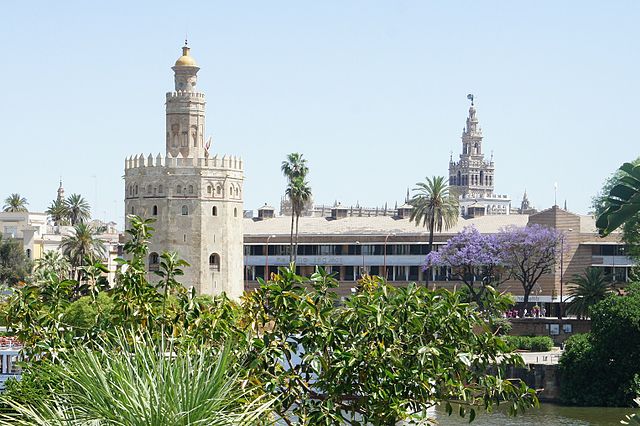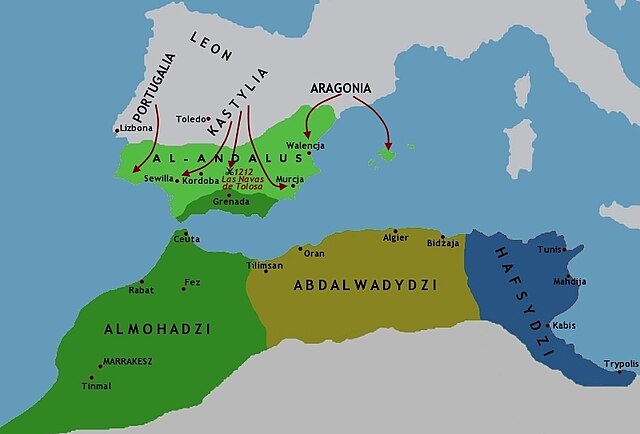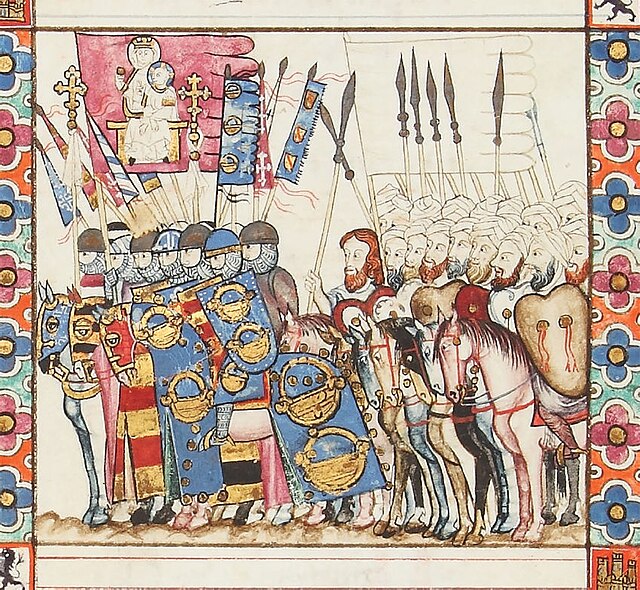Abu Abd Allah Amghar Ibn Tumart was a Muslim Berber religious scholar, teacher and political leader, from the Sous in southern present-day Morocco. He founded and served as the spiritual and first military leader of the Almohad movement, a puritanical reform movement launched among the Masmuda Berbers of the Atlas Mountains. Ibn Tumart launched an open revolt against the ruling Almoravids during the 1120s. After his death his followers, the Almohads, went on to conquer much of North Africa and part of Spain. Although the Almohad movement itself was founded by Ibn Tumart, his disciple Abd al-Mu'min was the founder of the ruling dynasty and creator of the Almohad empire.
An 1183 manuscript of Aʿazzu Mā Yuṭlab, a book of the teachings of Ibn Tumart
Ibn Tumart is proclaimed Mahdi. Folio from a manuscript of Nigaristan, Iran, probably Shiraz, dated 1573-74
The mihrab in Oued Ghir, Algeria, is the only remaining vestige of the mosque founded by Ibn Toumert between 1117 and 1120. According to some accounts, it is also believed that the historic meeting between Ibn Toumert and Abdelmoumen, the founder of the Almohad dynasty, took place in this mosque. Unfortunately, the mosque itself has completely disappeared and has been replaced by another mosque. Recognizing its cultural significance, the mihrab was classified as a national heritage site on November 3, 1999.
Tinmel Mosque erected in 1148 in honor of Ibn Tumart at Tinmel, once part of a large fortified complex, the first headquarters of the Almohads.
The Almohad Caliphate or Almohad Empire was a North African Berber Muslim empire founded in the 12th century. At its height, it controlled much of the Iberian Peninsula (Al-Andalus) and North Africa.
The Almohads transferred the capital of Al-Andalus to Seville.
Almohads after 1212
Almohad soldiers in the Cantigas de Santa Maria, depicted on the right under white banners
A copy of the Qur'an personally transcribed by Caliph al-Murtada, circa 1266








